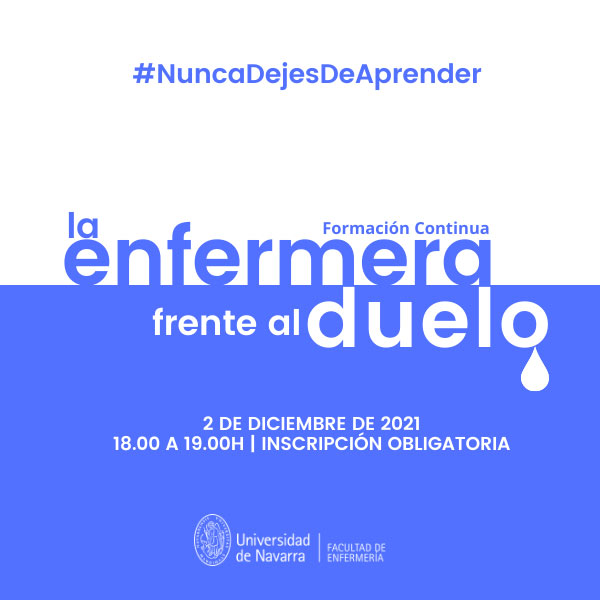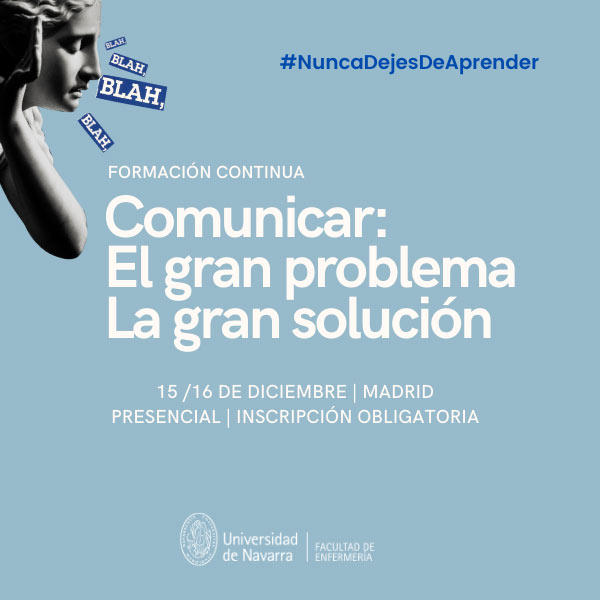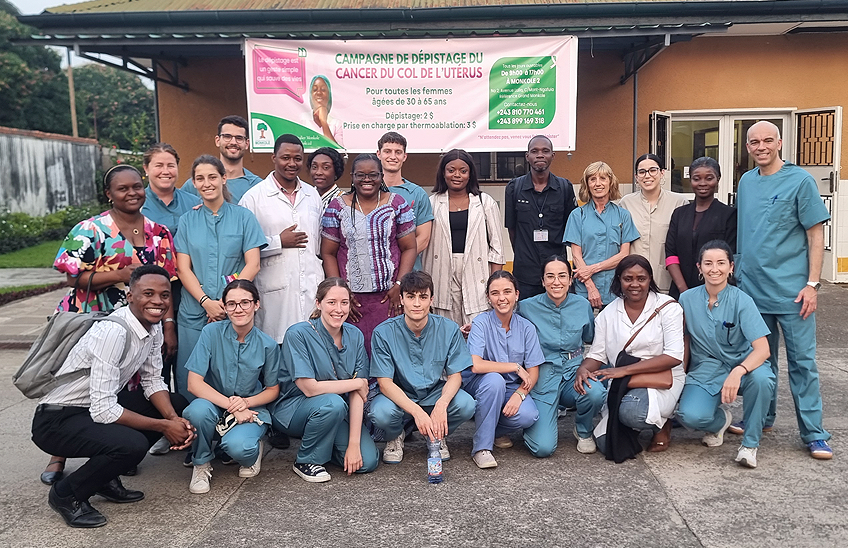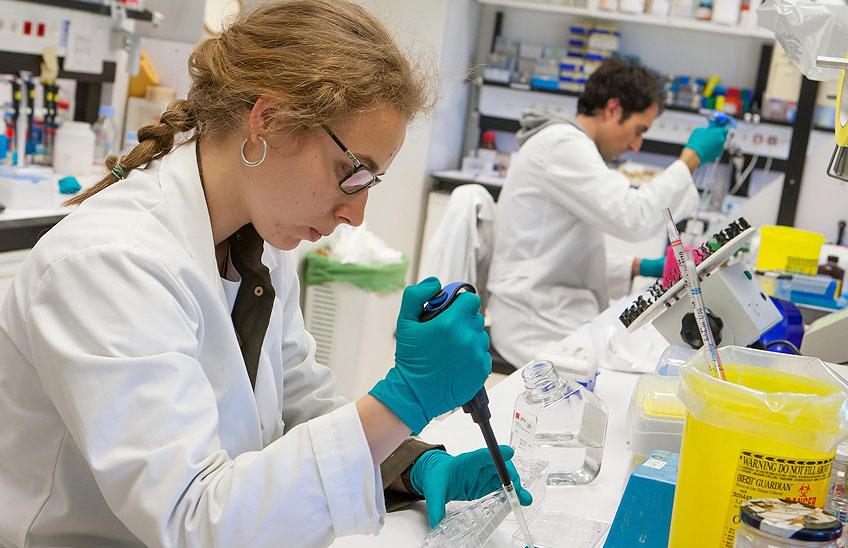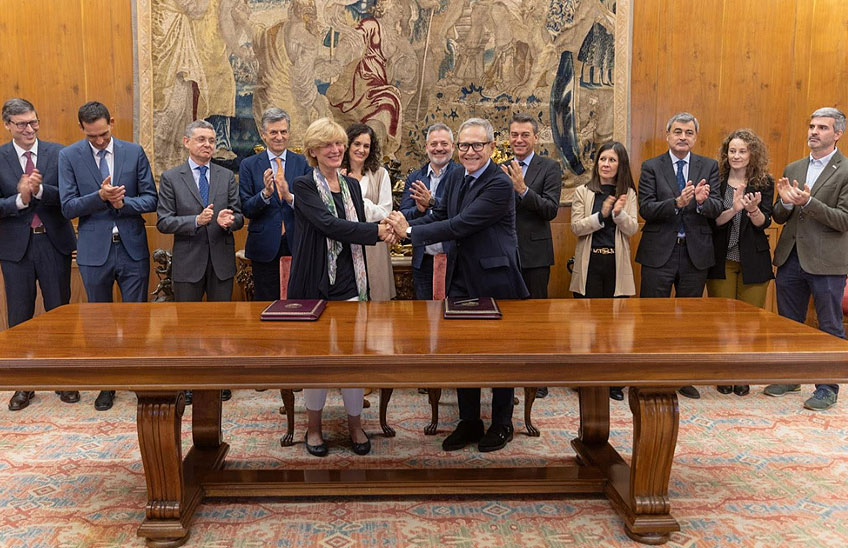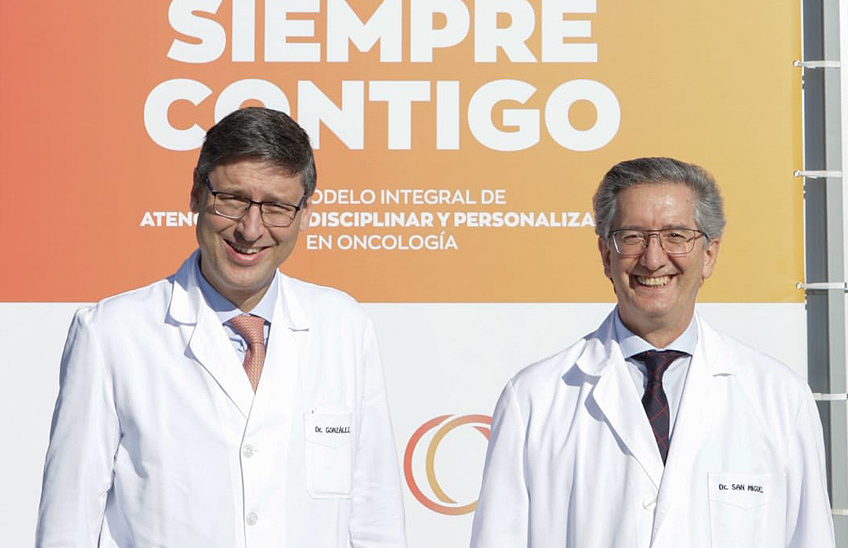"The centre of attendance must be the patient and we must all work as a team to provide the best service".
Health professionals from Clínica Universidad de Navarra and from the University Hospital of Navarra met to discuss interprofessionalism in the hospital setting.
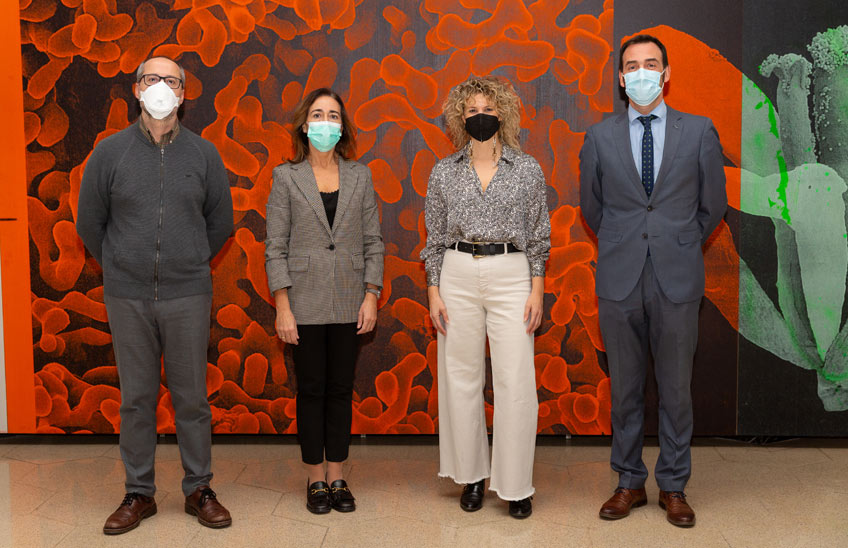
FotoManuel Castells<br>/De izquierda a derecha: El doctor Antonio Martínez, anestesista de la Clínica Universidad de Navarra; Maite Sarobe, directora del Servicio de Farmacia del Hospital Universitario de Navarra; Vanesa Salas, enfermera en la Clínica Universidad de Navarra; y Pablo Sáinz de Murieta, abogado de la Universidad de Navarra.
18 | 11 | 2021
"The centre of the attendance must be the patient and we mustall work as a team to provide the best service". These were the words of Dr. Antonio Martínez, anaesthesiologist of the Clínica Universidad de NavarraAntonio Martínez, an anaesthesiologist at the Spanish Nursing Association, spoke in a webinar organised by the School de Enfermería, which brought together different healthcare and legal professionals to discuss interprofessionalism in the hospital environment or the Degree of responsibility of each profile in professional practice.
Also in attendance were Vanesa Salas, nurse and coordinator of project in the transversal area of innovation and research of nursing management at Clínica Universidad de Navarra; Maite Sarobe, director of the Pharmacy Service of the University Hospital of Navarra; and Pablo Sáinz de Murieta, lawyer at the University of Navarra.
During the session, which forms part of the training Continua programme of the School, the speakers shared their ideas on what teamwork in the healthcare field entails and whether there really is a connection between the professionals working in the hospital. In this way, according to Maite Sarobe, "more and more work is being done as a team and in a more structured way". Vanesa Salas, for her part, pointed out that "for a team to be cohesive , it is important to have professional and communicative skills". In the same vein, Dr. Antonio Martínez stressed the importance of dialogue.
One of the conclusions of the session was that a lack of knowledge of roles or competencies among the healthcare professionals themselves can lead to problems when it comes to offering this care service. For this reason, work as a team becomes an essential tool to establish synergies. In addition, Dr. Antonio Martínez wanted to highlight the importance of "making a leap in learning and merging subjects or practices during the degree program to learn to work in an interdisciplinary way from the beginning".
A shared responsibility
The second part of meeting focused on discussion on how responsibilities are fragmented between different healthcare professionals. Antonio Saínz de Murieta, lawyer at the University of Navarra, stressed: "According to the rules and regulations or the law that regulates it, there are no regulatory limits on the responsibilities between doctors, nurses or pharmacists".
And Maite Sarobe, from the University Hospital of Navarra, commented that "the responsibility is not individual, but structural. In this way, everyone has a share of responsibility". Communicating information to patients or relatives is one of these responsibilities. It often falls on doctors, but the reality is different. As Dr Martínez commented, "nurses handle a lot of information as they spend more time with patients". In his opinion, "it would be important for the work between doctors and nurses to be closer".
Listen to the podcast of this webinar
Upcoming webinars

